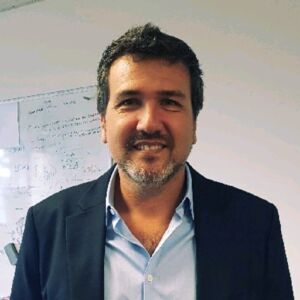 How to simplify data exchanges and portability between end-users, utility and energy third-party companies? The purpose of the ORATORIO project of GridPocket is to deliver a trusted energy data hub where end-users can safely and easily store and share their data with their preferred energy services providers. End-users can access an increased number of energy services and energy companies can gain more customers. Jean-Baptiste Bernard explains more.
How to simplify data exchanges and portability between end-users, utility and energy third-party companies? The purpose of the ORATORIO project of GridPocket is to deliver a trusted energy data hub where end-users can safely and easily store and share their data with their preferred energy services providers. End-users can access an increased number of energy services and energy companies can gain more customers. Jean-Baptiste Bernard explains more.
What problem does your project solve?
The European energy market is undergoing many major disruptions including deregulation, digitalisation and clean energy transition. None of these can be successfully accomplished without an ecosystem for data portability supporting ‘FAIR’ principles (findability, accessibility, interoperability and reusability).
While the ongoing investments in the connected energy infrastructure (smart meters, EV charging points, PV generators, smart buildings etc.) are very significant, the underlying data portability is still in its infancy at best. The newly-promoted European Green Deal aiming at climate neutrality by 2050, calls for almost immediate deployment of new energy data collection platforms and makes it very urgent to provide necessary interoperability and compatibility solutions.
Based on the ORATORIO energy data exchange framework, with a single click, the customer will securely share a complete subset of data in a universal format to ensure compatibility and interoperability. This format shall become a fully documented data exchange standard between platforms, involving data formats, encryption guidelines, transmission guidelines and associate usage privacy consent guidelines.
What drives you?
I started to be interested in behavioural science during my PhD. I worked in academia for many years, at the University of Marseille, France and at the University of California, Berkeley studying human perception and attention. I joined GridPocket three years ago. I immediately liked the idea of applying behavioural science to the energy sector to help people appreciate the possible impact of their energy consumption on their wallets and on the world.
The software tools that GridPocket develops are intended for energy providers which want to offer great-quality energy management solutions to their end-users. In recent years, GridPocket succeeded in developing more and more sophisticated products to offer the most interesting features for end-users. This became also possible with the broad development of smart meters. A large amount of data offers an important source of information to help end-users better understand their energy consumption. This is an exciting and important challenge in terms of big data algorithms, privacy and security totally in phase with the actual data revolution.
For now, we can say that people are still ignorant in Europe or in the world about the importance that their own behaviour can have at a global level. We believe that helping users to have access to solutions as the ones developed by GridPocket or other companies can help people to finally take this step.
What was the status of your project/technology situation before applying for NGI funding?
Our project was in preliminary shape, but GridPocket had 10 years of experience in delivering advanced data management solutions to the energy sector around the world. We knew through many discussions with our utility customers that a data portability hub was a promising approach to boost the accessibility to energy data services for final customers.
Our primary idea was that the ORATORIO project could bring pragmatic and efficient answers to data portability in the energy sector, based on the extensive experience of GridPocket in large scale deployments of digital energy services with electric and gas utilities. GridPocket was also involved in applied research of data security, analytics, open data and human acceptance that helped to refine the project.
How did NGI support your idea?
We were selected and funded by the NGI Data Portability and Services Incubator – DAPSI. In addition to the financial funding, NGI DAPSI gave us some very interesting and informative training about the latest advances in data portability research that helped us to consolidate our preliminary ideas. We also had some business training and useful follow-ups regarding the project.
Towards the end of the project, what was the evolution of the idea?
Eight months after the beginning of the project funding, a first version of the portal had been implemented and we are about to publish an MVP version. One utility company has already signed a contract to use the first components of the promising technology that was developed in the ORATORIO DAPSI project.
Dr Jean-Baptiste Bernard is responsible for Data Research, Project and Product manager, GridPocket SAS for more information see: www.gridpocket.com

